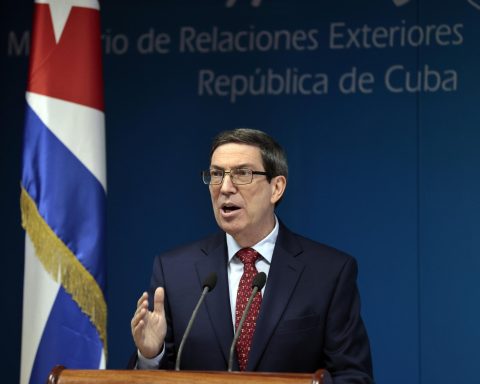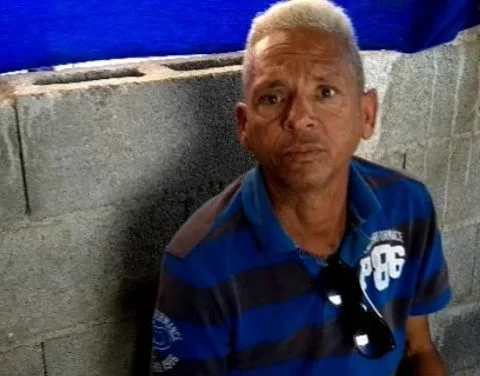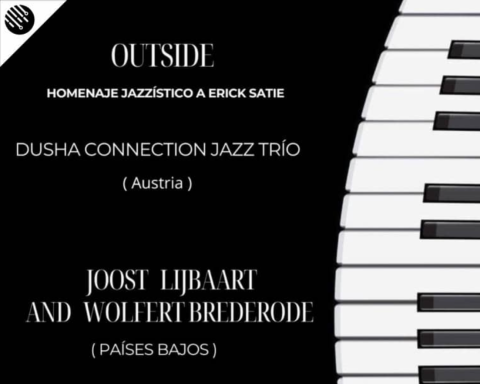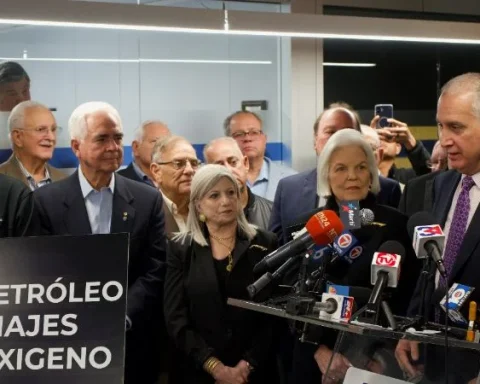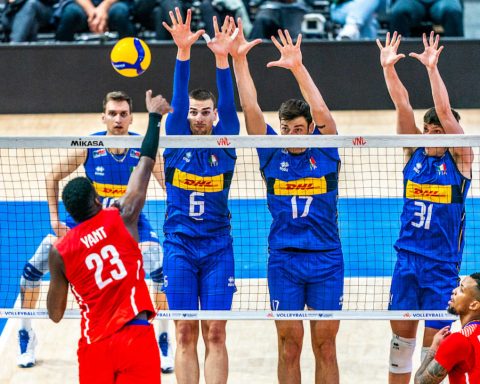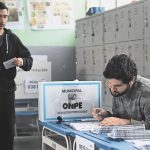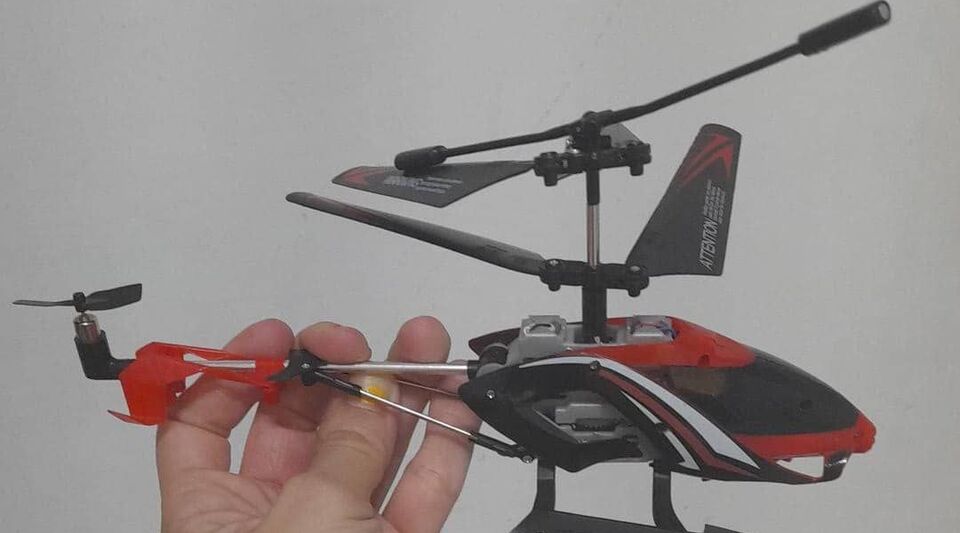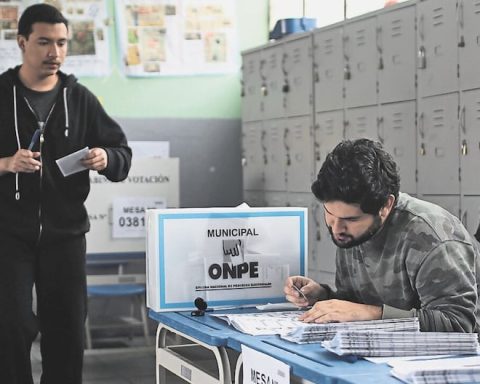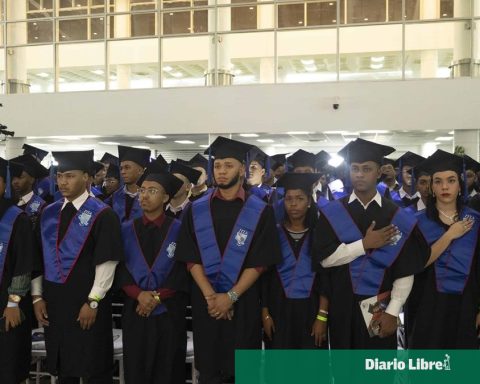The phrase is heard almost like a whisper on the other end of the phone line. “The mafia has ended democracy in Haiti.” Charles LeValeur tells me, in Spanish something like “Carlos with courage.” And this Haitian analyst who refuses to leave his country is right, among other reasons because he has political aspirations.
The problem, he stresses, is that Haiti’s political future is uncertain, very uncertain. In his opinion, the mafia (that is, the gangs) are gradually ending democracy in his country. The authorities maintain that about a hundred gangs reign there. In the United States embassy, the only one besides the French one that functions with some normality, the perception is different. A diplomat stationed in the middle of the island entrusts to OnCuba something older: “We think there are two hundred gangs. And most of them controlled by drug traffickers.”
One of the more “popular” gang members is Jimmy Cherizier, who often gets around the capital, Port-au-Prince, on the back of a motorcycle flanked by young men wearing black and leopard-print masks and carrying automatic weapons. His bodyguard.
This is how Cherizier, better known by his childhood nickname, BBQhas become the most recognized name in Haiti.
And in his territory, enveloped by the tin-roofed houses and the bustling streets of the squalid neighborhood of La Saline, he is the law.
He is internationally known as Haiti’s most powerful and feared gang leader, sanctioned by the United Nations for “serious human rights abuses,” and the man behind a fuel blockade that brought the Caribbean nation to its knees. end of last year.
But if you ask this ex-police officer with gun tattoos on his arm, he describes himself as a “revolutionary” fighting a corrupt government that has left a nation of 12 million people practically living on air.
When he started his career in 2010, after the earthquake, Cherizier told me that he wanted to be president. Last week in a telephone conversation, which must have been listened to by the region’s spy services, he reaffirmed to me through his satellite phone: “I no longer want to, I am the president, and without bureaucracy.” He bristled when he was faced with a laugh. “Don’t call me anymore,” he said in French. “I’m going to have to go see you at La Saline,” I replied. “Do not even think about it”.
This Monday the AP agency managed to speak with him. “I am not a thief. I’m not involved in a kidnapping. I am not a rapist. I’m just doing a social fight,” he said, sitting on a chair in the middle of an empty street in the shadow of a house with its windows smashed by bullets. “I am a threat to the system.”
At a time when democracy has withered in Haiti and gang violence has spiraled out of control, gunmen like Cherizier are filling the power vacuum left by a crumbling government. In December, the UN estimated that gangs controlled 60% of the capital, but today the majority on the streets of Port-au-Prince say that figure is closer to 100%.
“Democratically speaking, there is little or no legitimacy” for the Haitian government, believes Jeremy McDermott, director of InSightCrime, an investigative center focused on organized crime. “This gives the gangs a stronger political voice and more justification for their claims to be the true representatives of the communities.”
It is something that victims of the conflict, politicians, analysts, aid organizations, security forces and international observers fear will worsen. Civilians, they worry, will face the worst consequences.
The latest crisis came into full swing after the assassination of President Jovenel Mosëi in 2021. In his absence, current Prime Minister Ariel Henry emerged in a power struggle as the country’s leader, but with little strength and almost no popularity. Haiti’s nearly two hundred gangs have taken advantage of the chaos, fighting for control.
Tension surrounds Port-au-Prince. Police checkpoints dot busy intersections and police tags can be seen graffiti Saying “down with Henry” in every part of the city, count Haitians who have recently arrived in Miami. Citizens walk the streets with a concern that comes from knowing that anything can happen at any time, they explain.
An ambulance driver returning from taking a patient told the AP he was kidnapped, held for days and asked to pay $1 million to be released.
Those ransoms are now common and used by gangs to finance their wars. An average of four people are kidnapped every day in Haiti, according to UN estimates.
The UN recorded almost 2,200 murders in 2022, double the number of the previous year. The women describe brutal gang rapes in gang-controlled areas. Patients in trauma units are caught in the crossfire, devastated by gunfire from gangs or police.
“No one is safe,” said Peterson Pean, a man with a bullet lodged in his face from being shot by police after failing to stop at a checkpoint on his way home from work.
Meanwhile, a wave of grisly gang killings of police officers has sparked outrage and protests among Haitians.
After the murder of six officers, a video circulating on social networks, probably filmed by the gangs, shows six naked bodies lying on the ground with weapons on their chests. Another shows two masked men using the officers’ dismembered limbs to hold their cigarettes as they smoke.
“Gang-related violence has reached levels not seen in years…affecting almost all segments of society,” Helen La Lime, the UN special envoy for Haiti, said at a Security Council meeting in late January. .
Henry, the prime minister, has called on the UN to lead a military intervention, but many Haitians insist that this is not the solution, citing the past consequences of foreign intervention in Haiti. Until now, no country has been willing to put its boots on the ground.
The war has spread beyond areas historically devastated by violence and now consumes streets lined with mansions once considered relatively safe.
In October the UN imposed sanctions on Cherizier, including an arms embargo, an assets freeze and a travel ban.
Gang leaders like Cherizier have increasingly invoked political language, using the end of senators’ terms to question Henry’s power.
“Ariel Henry’s government is a de facto government,” says Cherizier. Therefore, he assures me, he fights it.
He doesn’t want to talk about drug trafficking.

